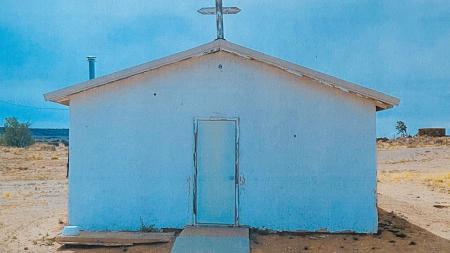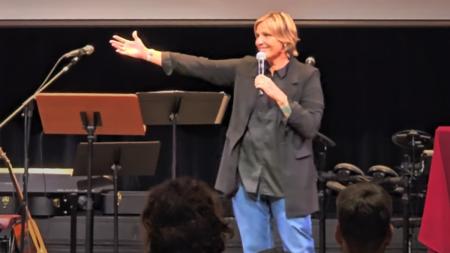Synod Says No to Classis Transfers
After a long and emotional debate, Synod 2010 turned down the requests of two Christian Reformed congregations for permission to move their memberships from classes in Michigan to Classis Minnkota.
A classis is a regional body of Christian Reformed congregations in a geographical area. Classis Minnkota includes congregations in North and South Dakota and Minnesota.
At issue were differing views between the churches and their Michigan classes over the issue of women serving as ministers, elders or ministry associates.
Trinity CRC in Sparta, Mich., and Second CRC in Kalamazoo, Mich., had asked synod for permission to move from their respective classes to Classis Minnkota. Both churches are opposed to women serving in ecclesiastical office, while the classes to which they belong allow it.
In overtures to Synod 2010, Trinity and Second CRC said that they love and want to remain in the CRC. But neither of them can easily work with their regional bodies because of the issue of women serving in ecclesiastical offices.
The two churches contacted classes that are closer to them, but they eventually decided that Classis Minnkota, which does not allow women to hold ecclesiastical office, would be the best fit, even though attending meetings of the classis would entail lengthy commutes.
Rev. Roger Sparks, a delegate from Classis Minnkota, said that his classis did not ask either of the churches to move their memberships.
“The request came to us,” he said. “We believed it would be a gesture of kindness to allow this. We are willing to provide a home for them and sanctuary during a time of what has been an ongoing storm.”
Synod delegates had received two reports from the advisory committee that dealt with the issue. A majority report recommended allowing the churches to change their memberships to Classis in Minnkota as a way to peacefully resolve the issue.
A minority report noted that while there is precedent in the CRC for congregations to transfer their memberships, it has only been to a neighboring classis. The report recommended that synod turn down the request for the sake of unity in the church.
“To separate may make the churches feel better, but it will not be an example of biblical unity to the world,” said Rev. George Vander Weit, a delegate from Classis Lake Erie.
“We would like to see these churches make every effort to walk with their classes with the confidence that God will do more with his power than we can ever imagine,” said Vander Weit.
The CRC allows women to serve in positions of authority, but it also acknowledges that some members hold to another biblical interpretation that bars women from serving as pastors, elders or ministry associates. Churches in each classis may decide whether or not to permit women to serve in that classis.
Rev. Timothy Raakman, a delegate from Classis Kalamazoo who serves a church in Three Rivers, Mich., said that Second CRC has not been hard to deal with. “This has been a very honorable process,” he said.
Rev. Bret McAtee, a delegate from Classis Lake Erie, said that he was pleased by the way in which the CRC allowed in-depth discussion on this issue. Although his church is one that is not in favor of women in office, it decided to remain in its classis, which has a more open stance on the topic.
Wendy Gritter, second clerk for Synod 2010, argued passionately for the minority report, pleading for unity instead of the ongoing acrimony over the issue of women in office.
Gritter, an elder at Community CRC of Meadowvale in Mississauga, Ontario, came to synod as a delegate from Classis Toronto.
“It is painful to me to know that my presence here on this platform at synod is painful to others,” she said. “But living in the pain of this paradox has enlarged in me the capacity for hospitality…There is more power in experiencing grace through differences. We should allow the spirit of God to work within us in these paradoxical situations.”
After rejecting the request by the two churches to change membership, synod instructed the CRC’s Board of Trustees to have Rev. Jerry Dykstra, executive director of the CRC, and others work with the two churches in order to try to “seek ways forward.”


